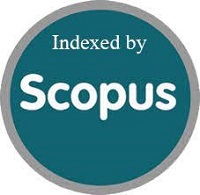Psychometric Properties Of The Perceived Stress Scale (PSS-10) In Indonesian Version
DOI:
https://doi.org/10.15408/jp3i.v13i2.35482Keywords:
perceived stress, perceived helplessness, perceived self-efficacyAbstract
The Perceived Stress Scale (PSS-10) by Cohen is a popular tool for measuring stress from a psychological perspective. The PSS-10 measures the extent to which situations in a person's life are perceived as stressful. This study aims to evaluate the psychometric properties of the Perceived Stress Scale adapted into Indonesian. The PSS-10 has been translated into various languages, but no previous studies have specifically explored the psychometric properties of the PSS-10 in Indonesian. Additionally, this study seeks to test the construct invariance of the PSS-10 among students and workers. The respondents of this study were employees working in several regions in Indonesia (N=259) and college students (N=244). Data analysis was conducted using Confirmatory Factor Analysis (CFA) and Measurement Invariance (MI). After testing for validity based on internal structure, the Indonesian version of the PSS-10 fit the two-factor model (perceived helplessness and perceived self-efficacy). The AVE value of 0.38 for student participants was considered low, with a CR value of 0.81, which is quite good. For employee participants, the AVE value was 0.58 and the CR value was 0.93, both of which were good. Based on the multigroup CFA analysis test, there are differences in the factor structure of the PSS-10 between students and employees, where these differences lie in how the two groups respond to and interpret the items of the PSS-10.



